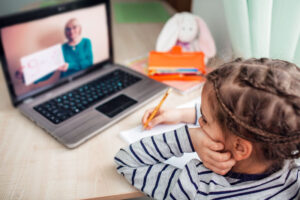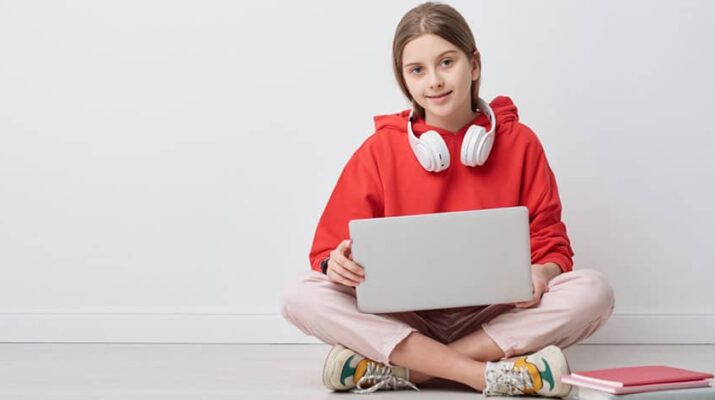Online classes are effective to contain the transmission of coronavirus but they are robbing kids from having the full school experience: interacting with others, developing connections, teamwork
By Deborah Jeanne Sergeant
 Attending school is more than learning academic subjects and physical education. For many children, it represents their main source of socializing opportunities with peers. Because of the pandemic, this important aspect of school has been indefinitely put on hold.
Attending school is more than learning academic subjects and physical education. For many children, it represents their main source of socializing opportunities with peers. Because of the pandemic, this important aspect of school has been indefinitely put on hold.
Even children who home school have lost face-to-face connections with those in their home school groups, clubs, athletic teams and other social outlets as these have been shuttered or at least curtailed during the pandemic.
While deemed necessary to curb the spread of coronavirus, online school presents a different dynamic to children.
They may be able to interact with teachers in real time and with each other on a limited basis, but they have lost the incidental socializing in a normal school day: chatting between classes, sharing stories over lunch, hanging out while waiting for the school bus, sitting with friends riding to and from school.
These moments may seem inconsequential; however, they help children learn and develop in many ways.
“Socializing is a really important part of childhood development from birth to adolescence,” said Megan Campbell, a pediatrician in Syracuse.
From the pre-school age and onward, peers grow in importance to children as they learn about sharing, social skills, personal boundaries and social norms. Some of these differ from those they have experienced in their own families.
A lack of social interactions – positive, negative and neutral — means fewer opportunities for developing emotional intelligence and skills that will help children navigate relationships of all sorts. Unlike planned interactions with friends through technology (a Zoom meeting between best friends), the more spontaneous interactions in a school day (learning how to befriend an irksome classmate) tend to be more educational. Children also miss chances to develop teamwork skills without group activities and sports.
“At adolescence, their peer group is very important to them,” Campbell said. “They’re learning who they are still. At that age, they’re trying to separate from their parents in preparation for adulthood. It’s very difficult during COVID to get those socialization needs.”
She added that virtual socializing can help and activities like drive-by birthday parties and socially distanced outings. But interactions at school through teams and other groups may take more time to become available to children.
Physician Geoffrey Hopkins, chairman of the department of psychiatry St. Joseph’s Health, said that restricting sports “is one of the big, important things if your child previously enjoyed sports.”
In addition to the physical activity, sports teach teamwork, sacrifice, delayed gratification and respect. But the temporary loss of sports and other interactions should not have lasting effects on childhood development.
“Children in general are incredibly resilient,” Hopkins said. “Allowing them to transition back to activities in a graduated matter is important. Many have had two-week quarantines from school. When they returned the first day or two of their hybrid model, they have had some anxiety. Being able to speak openly with your children and how they may feel – nervous, worried or shy — is a normal consequence of having that separation.”
In the meantime, he encourages parents to help their children to participate in activities in a safe way, such as a socially distanced winter activity with friends or engaging in outings as a family.
Since the pandemic began, school – and more – shifted to the digital world. While those who are introverted may welcome less pressure to engage with others and more barriers between themselves and social interactions, that may not be beneficial for their development. And for those who thrive on socializing, stunting these interactions can feel as if they are hamstrung.
Hopkins encourages parents to stay attentive to their children’s emotional needs and watch for any signs of depression or anxiety, such as changes in eating and sleeping habits and extreme changes in behavior beyond the garden variety acting up or regression. Although it is not the same as peer interactions, taking time for one-on-one interaction with the children can help them feel better connected.
Taking time to pay attention to each child one-on-one can help mitigate the effects of fewer peer interactions. Especially for older children whose peer groups are even more important, it can help to connect through Facetime or Zoom with friends.

